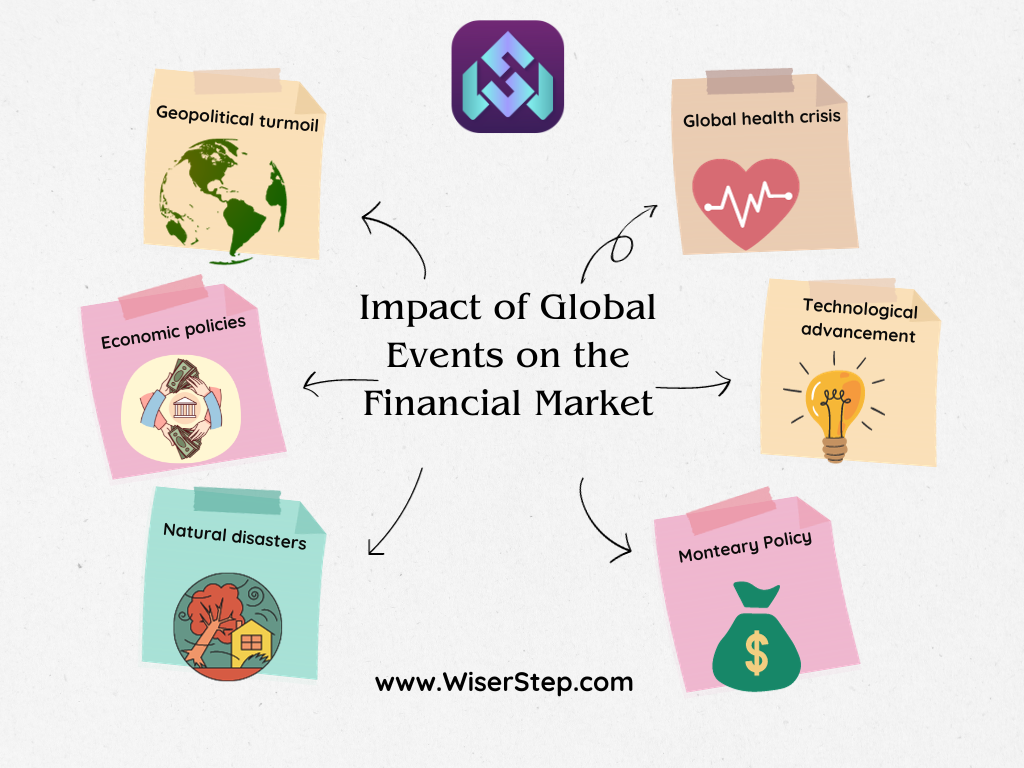In the ever-changing landscape of the global economy, financial markets serve as the barometer of stability and resilience. These markets are profoundly influenced by a myriad of factors, including political decisions, economic policies, and perhaps most significantly, global events. From geopolitical tensions to natural disasters, these events have a substantial impact on financial markets worldwide, sending ripples across borders and reshaping investment strategies. In this blog post, we will delve into the intricate web of cause and effect, exploring how global events leave an indelible mark on the financial market.
Geopolitical Turmoil
One of the most potent catalysts for market fluctuations is geopolitical unrest. Political crises, trade wars, and international conflicts can instill fear and uncertainty among investors, leading to sharp declines in stock prices and volatile currency movements. For instance, the escalating tensions between major world powers can lead to a sell-off in global equities as investors seek safe-haven assets like gold and government bonds.
Economic Policies and Trade Agreements
The decisions made by governments regarding fiscal policies, taxation, and trade agreements can profoundly impact financial markets. Tariffs imposed on imports, for example, can disrupt international trade, affecting businesses and investor sentiment. Conversely, trade agreements can bolster market confidence, fostering economic growth and stability.
Natural Disasters and Climate Change
Natural disasters, exacerbated by the effects of climate change, pose a significant threat to financial markets. Hurricanes, earthquakes, and floods can devastate regions, disrupting supply chains, increasing insurance claims, and causing a decline in stock values for affected companies. Furthermore, the growing awareness of climate change has prompted investors to scrutinize companies’ environmental practices, influencing investment decisions and reshaping industries.
Global Health Crises
The outbreak of pandemics, as witnessed with COVID-19, can have a profound impact on financial markets. Widespread fear and uncertainty can lead to market crashes, as investors anticipate economic slowdowns and reduced consumer spending. Industries such as travel, hospitality, and entertainment are particularly vulnerable during health crises, experiencing sharp declines in stock prices.
Technological Advancements and Cybersecurity Threats
The rapid advancement of technology has transformed financial markets, enabling high-frequency trading, algorithmic trading, and decentralized finance (DeFi). While these innovations enhance market efficiency, they also introduce new risks, particularly cybersecurity threats. Cyberattacks on financial institutions can lead to significant losses and erode investor confidence, highlighting the interconnectedness of technology and market stability.
Monetary Policy and Central Bank Decisions
Central banks play a pivotal role in shaping financial markets through their monetary policy decisions. Interest rate changes, quantitative easing, and open market operations directly influence borrowing costs, consumer spending, and investment decisions. Markets closely monitor central bank announcements, as they provide crucial insights into the economic outlook and guide investor behavior.
In conclusion, the impact of global events on financial markets is undeniable, showcasing the interconnected nature of our world. Investors, policymakers, and financial institutions must remain vigilant, adapting to the ever-changing landscape and anticipating potential risks. As we navigate the complex web of geopolitical challenges, economic policies, and technological advancements, understanding the profound influence of global events on financial markets is essential for making informed investment decisions and ensuring a stable economic future.

